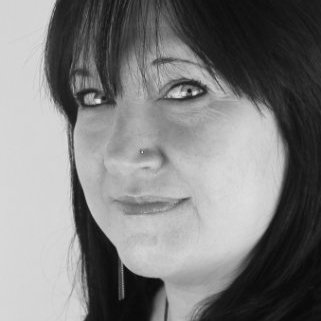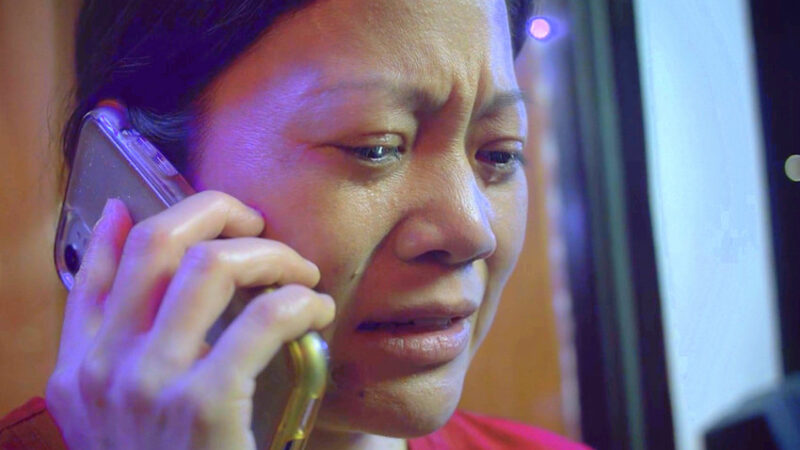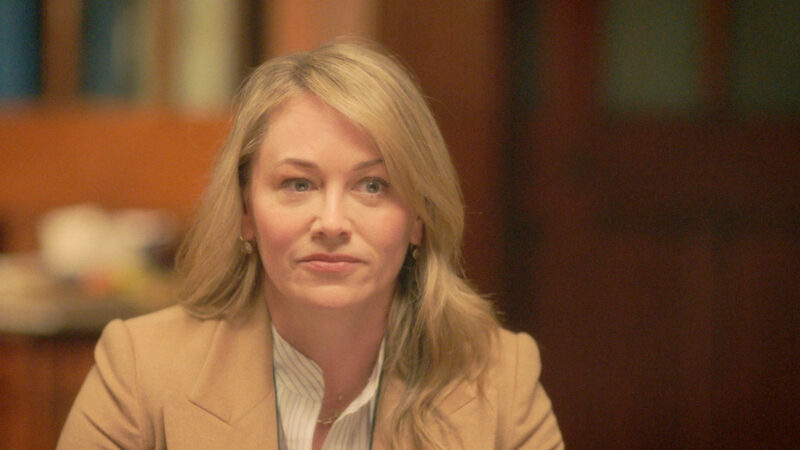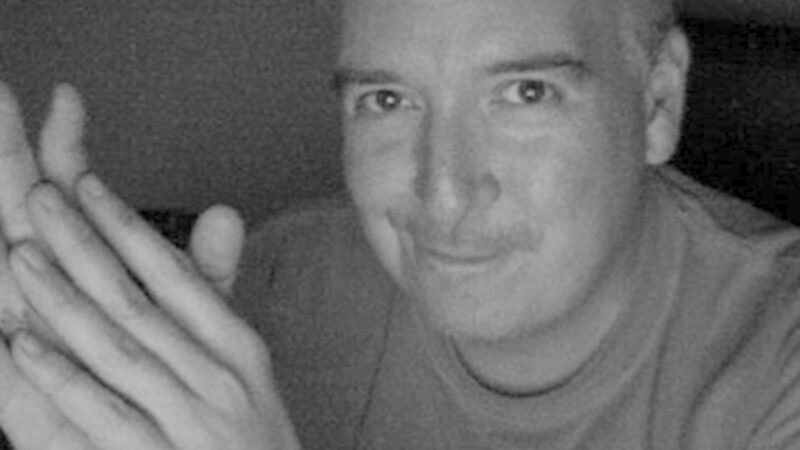Do it properly and professionally

My name is Julie Paupe, 48 years old and from the Midlands in the UK. I am a screenwriter and executive producer with Wonder Works Films and HorrorFlix. I also do script edits for other companies and run my own screenplay consultancy services internationally. I have two children, a son (23) who is in the computer games industry and a daughter (19) studying for a photography diploma.
How would you describe your writing
I write for film, mainly with the elements that cinema/movie theatres require. I like to write about things that ‘could’ happen – and haven’t happened yet – such as the effects of North and South pole reversals in ‘Pole Shift’ that could happen at any given time. It concentrates on the worst effects it could have on us and the earth and how we’d have to adapt to the change in our environment.
How did you get into writing
I used to write my own little story books when I was about 9 by folding A4 paper to look like pages in a book and then drawing and writing on the pages to create a story. In 1991, I wrote a book called Button Oak for children but never got it published. When I was 29 with two children, I decided to take a 30 module home study course on creative writing. I wanted to write a book while I was at home, but ended up enjoying the module on screenwriting much more. I got so drawn into it, that I wanted to write my own screenplay.
Did you study writing
Only the 30 module home course on creative writing. The rest came from learning the craft and receiving advice from producers who read my work.
 What is the difference between a screenplay and a play
What is the difference between a screenplay and a play
A screenplay is shown in the cinema/movie theatres/TV – anything recorded for screen. A play is performed on the stage or floor. It is live in front of an audience with only one take to get it right.
How do you turn an idea into a play
There has to be extreme continuity of scenes in a stage play, as opposed to a screenplay – longer scenes and reasons for characters to leave and enter the stage. The less set changes and characters, the better. The dialogue has to be drama driven, as this is what carries a play forward. You can’t rely on stage setting and sound effects to set the scene. The story has to come through the character’s emotions and dialogue much more. The more they have to say, and the more passionate they act, the better the audience will receive it. For a screenplay, you need an exciting concept with a fresh twist such as my film The Battle Foretold. It is based on the battle of Troy, done many times over, but this time, I focus on the parents of the foretold heroes, and how they are hunted down before they can conceive these predicted heroes of war. Trying to prevent the prophecy actually provokes it, so it’s taking an original take to a much written story.
What do you do to get an idea, that you can turn into a play
Sometimes I see articles on the internet that I think will make a great plot, or I use old stories and take on a different twist that surrounds it. I’ve written a comedy/horror revolving around the Great Fire of London and the mystery that surrounds how the fire started and why it the regulations in place for such a disaster were never used to top the fire spreading. It’s titled Pudding Lane. Take an well known story, make a new one out of it. Just like I did with The Battle Foretold too
Briefly describe a few wrong impressions writer indulge in
Many don’t know how to send a proposal to a producer. It should start with a logline (a summary in one line about your story that makes the producer want to read more). Then introduce yourself, your name, where you’re from and why you’re writing to them. The next part should have information about your story in more detail, a brief synopsis will do and who’s on board. Many send a screenplay on the initial pitch. Never do that due to legal reasons. It shows you as an amateur. Wait until you’re asked to send it. Stories have to be original. People won’t invest time and money on a project unless they think they can’t earn returns on what they are producing. Why would they? If you can’t catch a producer with a logline, he won’t read your script. Don’t be repetitive in your story. Don’t drag out situations without it getting better or worse. It has to keep moving and not sit stagnant. Show it, don’t tell it. Use flashbacks, dreams and imagination.
Do you often take courses in writing
No
What books do you read
I tend to read books written for the era of a project I’m on. I’m currently reading a Victorian set novel titled, The Monster Hunter, written by Kit Cox, who is playing the role of the Parish Leader in my film Pudding Lane.
What do you do to keep in shape as a writer
I have a dog. She’s a Jug – half Jack Russel/ half Pug. Her name is Tilly and she’s only one and very lively so she enjoys a walk.
When you are offered a play to write, what is your routiine
Research. You can’t do too much research on the subject matter. I also make sure I have all the information, action and storyline that the writer wants integrating into it – and then I turn it all into an industry standard screenplay.
How do you develop a character in a script
I turn myself into the character – whether it is a murderer, a politician, a hunter, a child, a prisoner, an African-American – I become that person in my mind. How would I react as this person? What would I do? How would I handle it? What would I say? How would I feel? It never comes out the same because no one is the same and neither are my characters. Some writers do their dialogue too calm in situations where their character would more than likely lose it. Too brave where the character should be showing fear. Too happy when they should be heartbroken. Hero’s hearts can break too. Don’t be afraid to be real. It’s what makes it believable.
What is the most memorable character you have written
Taylor in Life Travelers. Life Travelers is based on the theory on future life progression hypnosis, a means of discovering who you will become in your next life, your reincarnation. It’s a practice used today, but more as a means for fun and discovery. In my film, it’s taken seriously, and if a person’s reincarnation is discovered to be of more use to the world of science, technology and peace than their present life is, they are terminated to bring forth their soul rebirth. In the film, Taylor is a good person who is on the run from government assassins ordered to set her soul rebirth in motion. I would hate to be in that position. Why should she give up her life to a wild prophecy and for people who aren’t even born yet? I really sympathized with her character and the life she had to lead at the expense of a prediction that was clearly going to come true, it was just a matter of when.
What do you want from a director during production
Passion for the project and the skill to fulfill the vision of the film.
How do you prefer to work with a director during production
I am happy to let the director do his/her job and to watch and learn. We all have our jobs to do.
How do you get offer from the film industry
I write for Wonder Works Films, partners of Ridley Scott’s RSA Films. I write on demand for them.
What do you think a writer can do to get into the film industry
Don’t expect the big Hollywood companies to take you on. It’s very difficult to get on board a big private team. They have writers and they’re very able writers. Try to find out who their sister or partnering companies are and write to them. Write to as many production companies as possible. Expect only half of them to reply. Be prepared to start at the bottom and take advice. Don’t ask for money. You won’t get paid for your screenplay until the first day of shoot (unless you get a small option fee). If you want money up front, don’t be a screenwriter. Be original with your work. You can write about a lottery winner, a romcom, a murder – so long as the story has a fresh and new twist. Write between 90 and 120 pages with industry standard software. Final Draft software has many features in it that producers and directors like to work with. It also shows professionalism rather than you sending a script on Microsoft Word or other program. If you’re going to do, do it properly. Producers don’t work with hobbyists. and they’re so easy to spot
Who is you favorite writer
There are so many. Luc Besson stands out for me.
Why
His films can be action movies that women can relate to, like Lucy and Unleashed. They’re not all macho orientated movies like Rambo or 300 where a muscle man with a sword or gun is top dog.
What advice would you give writer
Do it properly and professionally. Use the correct software or get it polished and edited by someone who has it and knows how an industry standard screenplay should look Get a script analysis done. You can send this on your initial pitch instead of the screenplay (due to legal reasons of copying ideas). It will highlight the best parts of your script and could lead to a script read. All of these services can be found on my website.
Briefly write about your career
I am a screenwriter and executive producer for Wonder Works Film [us][gb] – partners of Ridley Scott’s RSA Films and HorrorFlix [us][gb]. I am also a professional screenplay consultant/advisor. Script Writer Help | Screenwriter Julie Paupe | Screenplay Editor





